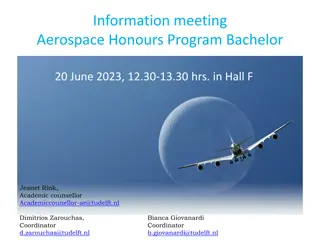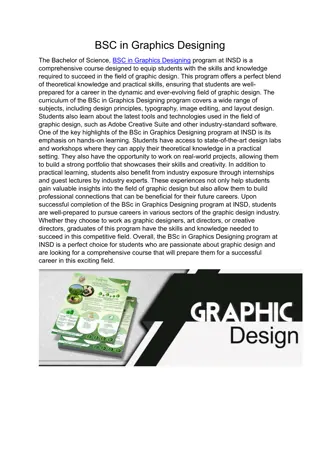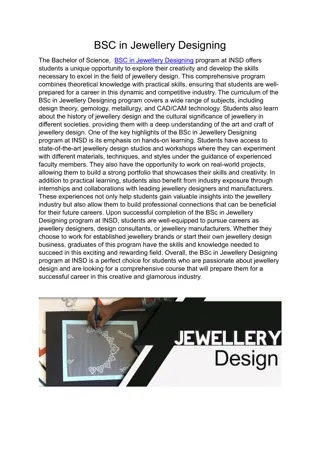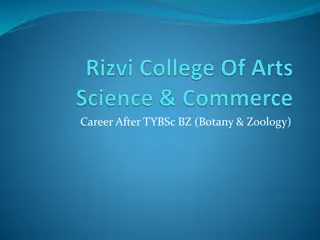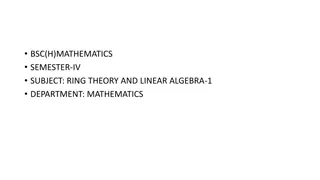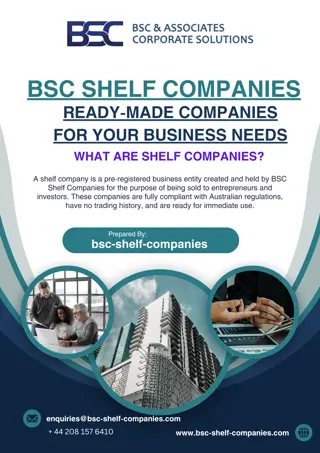
Effective Team Building Strategies for Success
Explore the key concepts of team building, including the definition of a team, the importance of teamwork in achieving goals, essential character traits for success, the difference between a group and a team, and the basis for comparison. Learn how discussing, deciding, and delegating tasks can lead to individual and collective accomplishments. Discover the various approaches to team building for enhanced collaboration and productivity.
Uploaded on | 0 Views
Download Presentation

Please find below an Image/Link to download the presentation.
The content on the website is provided AS IS for your information and personal use only. It may not be sold, licensed, or shared on other websites without obtaining consent from the author. If you encounter any issues during the download, it is possible that the publisher has removed the file from their server.
You are allowed to download the files provided on this website for personal or commercial use, subject to the condition that they are used lawfully. All files are the property of their respective owners.
The content on the website is provided AS IS for your information and personal use only. It may not be sold, licensed, or shared on other websites without obtaining consent from the author.
E N D
Presentation Transcript
CH-3 Team Building and Teamwork V.S.KharoteChavan,E&Tc,PC poly 1
What is a Team? or goal. Together EveryoneAny group of people organized to work together or interdependently in order to cooperatively meet the needs of their Together Everyone Accomplishes More A group of people with a common, collective goal. V.S.KharoteChavan,E&Tc,PC poly 2
Need for a Team Why do companies use teams? Satisfies the human social need to belong Two heads are better than one The whole can be greater than the sum of its parts Team members build trust and want to help each other Promotes better communication Multiplies the potential of individual members Produces positive peer pressure V.S.KharoteChavan,E&Tc,PC poly 4
Character Traits & Teamwork What are some traits that can contribute to the success of a team? Honesty/integrity Selflessness Dependability Enthusiasm Responsibility Cooperativeness Initiative Patience Resourcefulness Punctuality Tolerance/sensitivity Perseverance V.S.KharoteChavan,E&Tc,PC poly 5
DIFFERENCE BETWEEN GROUP AND TEAM V.S.KharoteChavan,E&Tc,PC poly 6
BASIS FOR COMPARISON GROUP TEAM A group of persons having collective identity joined together, to accomplish a goal. A collection of individuals who work together in completing a task. Meaning Leadership Members Only one leader More than one Independent Interdependent V.S.KharoteChavan,E&Tc,PC poly 7
Discuss, Decide and Delegate. Discuss, Decide and Do. Process Work Products Individual Collective Accomplishing individual goals. Accomplishing team goals. Focus on Accountability Individually Either individually or mutually V.S.KharoteChavan,E&Tc,PC poly 8
APPROCH TO TEAM BUILDING V.S.KharoteChavan,E&Tc,PC poly 9
The first type of team building is the Personality-Based Team Building, which also comes in different forms. But the most common of which is the use of a personality questionnaire which will not only teach about the personality of each individual but also about the personality of other members of the team. V.S.KharoteChavan,E&Tc,PC poly 10
The second type of team building is the Activity-Based Team Building which comprises a fulfillment of perplexing tasks, most often in an outdoor set up, such as mountain climbing, trekking and a lot more. Teamwork from all members of the team is required in these activities, for them to succeed with the challenges. Also, the success and the lessons that they have seen and achieved in the course of those activities can be brought into the office thus creating new relationships between the team members. V.S.KharoteChavan,E&Tc,PC poly 13
Third type of team building is Skills-Based Team Building Skills which engages team members in a workshop developing certain skills, such as the positive reception to criticism, dealing with conflict, effective team meetings and more. With the development of these skills during the activities and workshops, it is possible to create a more effective team if the skills acquired are applied in the workplace. V.S.KharoteChavan,E&Tc,PC poly 16
The fourth type of team building is the Problem Solving-Based Team Building which is frequently executed at an outside event but can also be applied to an indoor challenge. This type of team building is aimed at helping the team unravel and solve certain problems given by an outside facilitator. The members of the group will then work together to identify the challenges and possible solutions while trying to work as excellently as possible in solving the problem. V.S.KharoteChavan,E&Tc,PC poly 18


